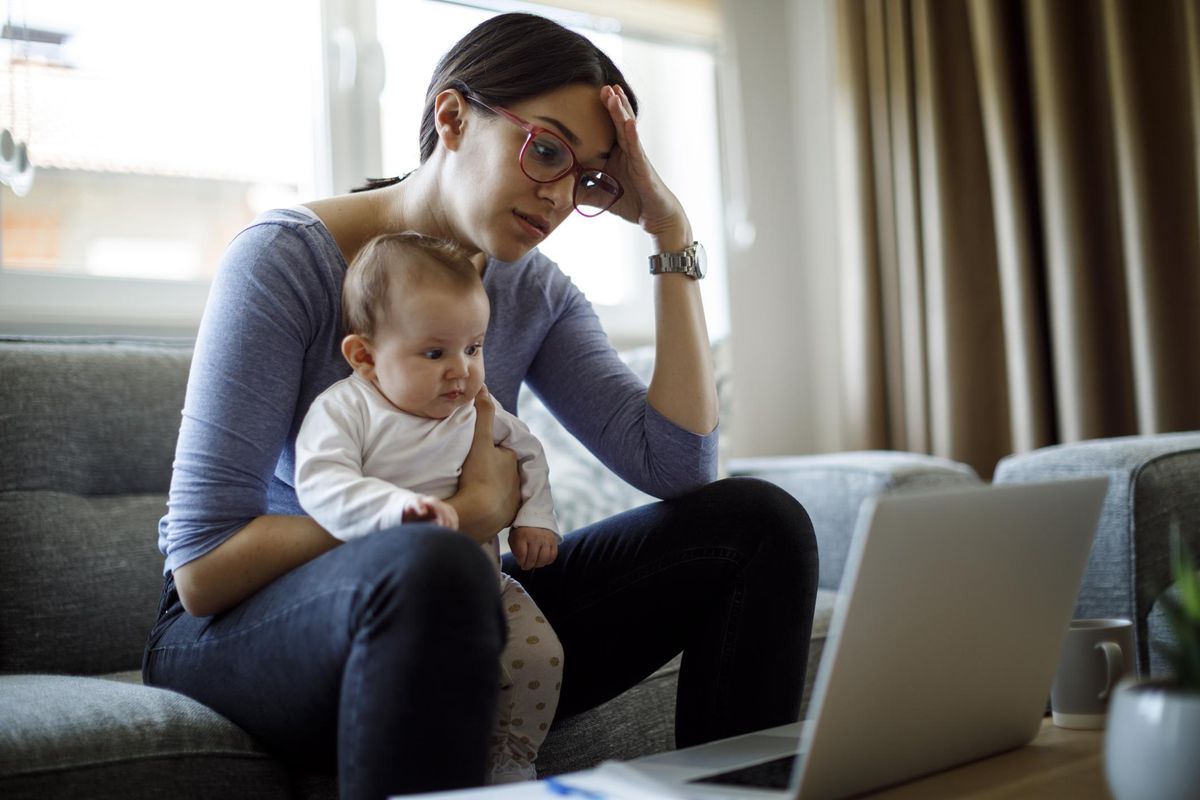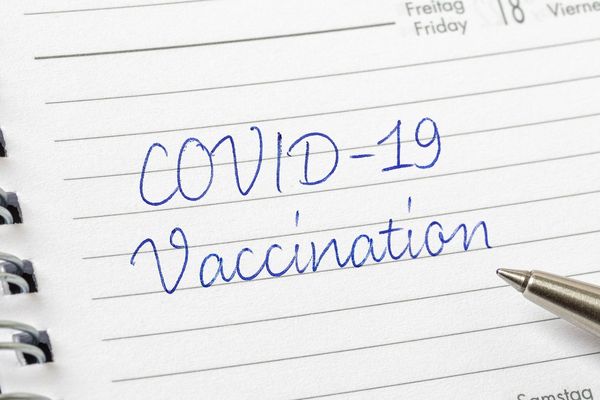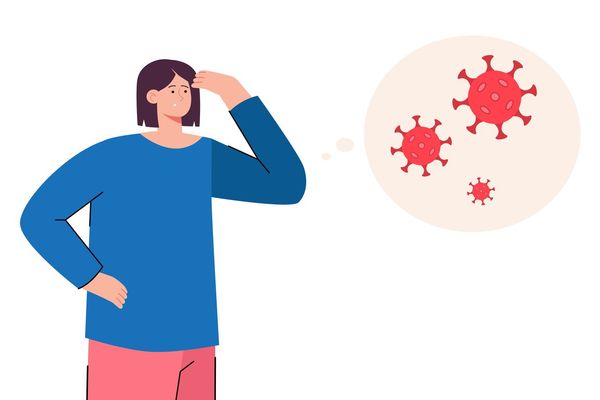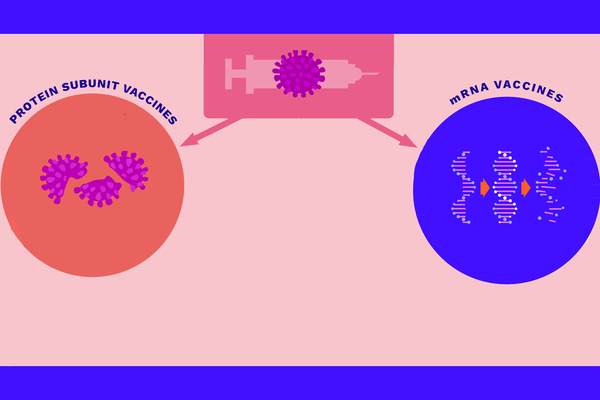If you're a woman, you probably know what it feels like to juggle work, childcare, housework and your own well-being. It's a lot all at once. But, what can be even harder is if you no longer have to juggle work as part of your responsibilities, but you still need income.
Since the beginning of the pandemic, women have been losing their jobs at a higher rate than men. This is explained in part by the fact that women are more likely to work in sectors hit hardest by the pandemic, including retail, hotels, food service, childcare and health care. And it's also because some women have been forced to take on more of the caregiving burden of their children and families as schools have closed.
Without sufficient income, it's hard to pay for basic necessities like food, shelter, utilities, health insurance and medical care, let alone internet access for your children's virtual education.
In an effort to provide economic relief to individuals and small businesses hit hard by the pandemic, Congress passed the Coronavirus Aid, Relief, and Economic Security (CARES) Act last March. CARES included one-time cash payments, increased unemployment benefits and forgivable small business loans — and was a lifeline to many Americans. Under the act, people generally ineligible for benefits, including gig workers and freelancers, could receive them. In April, a second piece of legislation, Cares Act 2.0, was passed to provide additional funding and support for small businesses and nonprofit hospitals.
Unfortunately, in July, the $600-per-week supplement to unemployment benefits under the CARES Act ended, leaving people who still needed regular unemployment benefits receiving an average of only $321 per week from their states.
Now, the situation is about to get much worse: At the end of 2020, the CARES Act unemployment programs for gig workers and freelancers are set to expire, meaning 13 million people could lose their benefits.
While people of all genders will suffer due to a reduction of benefits, women, who are being disproportionately impacted by the pandemic, are desperate for economic support. We need a new stimulus package — and we literally can't afford to wait.
Women are being hit harder than men
Between January and October of this year, 2.2 million women (compared to 1.5 million men) either lost their jobs or stopped looking for work. According to a Washington Post analysis, mothers of school-aged children were a third more likely to lose employment or leave the workplace altogether than their male counterparts. And they are returning to work at a much slower rate. Women at all income levels across all industries and sectors have had to give up their jobs to stay home to care for their kids.
And as bad as it is for women, it's worse for women of color. Between January and September, the unemployment rate for white women increased from 3.0% to 5.9%, according to the Economic Policy Institute, compared to 5.6% to 9.9% for Black women and 4.6% to 10.2% for Hispanic women.
Women and the gig economy
Women constitute 39.3% of America's self-employed. These women are a part of the gig economy, which is defined by workers who have freelance jobs or short-term contracts as opposed to permanent, salaried positions. Gig workers have been some of the hardest hit by the pandemic due to safety concerns or a decrease in demand.
With unemployment programs for gig workers and freelancers set to expire, the federal government is essentially pulling the rug out from under millions of people who need help the most — caregivers, single mothers and women in general.
What’s the holdup to getting women the support they need?
Unfortunately, stimulus funding has become highly politicized and has been in a holding pattern since May. But now is not the time for partisan behavior. As the next stimulus package sits in limbo, Americans — particularly women — have been suffering.
An important provision of the first CARES Act sent out direct cash payments to help Americans shoulder the financial burden of the pandemic. These payments — called economic impact payments — were $1,200 for individual tax filers or $2,400 for those who file jointly, plus $500 for each qualifying child.
In August, the Bureau of Labor Statistics reported that, of households that received or expected to receive a stimulus check in June, the majority (59%) said they would use the money for basic expenses. Not surprisingly, that percentage shot up for those at the bottom of the income scale. In households earning less than $25,000, a full 77% expected to use the payment for basic expenses. But even among those earning a comfortable income ($75,000 to $99,000), a majority (58%) planned to use the payment for necessities.
If the government expects women to contribute to the economy while continuing to perform the majority of childcare and household labor, then Congress must immediately step in and extend unemployment benefits into the new year — including to gig workers. Congress must also provide provisions to support people dealing with rent and mortgages coming due. And legislators need to address food shortages, childcare needs, lack of internet connection and educational disparities — in particular, minority children in low-income families could experience a tremendous learning gap.
Healthcare disparities are yet another pressing issue. Although the Centers for Medicare and Medicaid Services (CMS) temporarily expanded Medicare coverage in March, some benefits (including for telehealth benefits) have since expired or been rolled back by private insurers. Telehealth has been particularly important in providing access to mental health needs during the pandemic, and it can help address disparities in vulnerable populations, including people with low income or the underinsured. Now is not the time to make access harder.
Currently, there appears to be bipartisan support for a new $908 billion economic relief proposal that combines components of previous proposals written by Democrats and Republicans. If passed, this proposal could extend unemployment benefits, provide help for small businesses, and provide funding for myriad other measures such as education funding, nutrition, housing and rental assistance.
While it won't address all that women need, it is still much needed emergency relief. And, if the relief doesn't come, millions of people — many of them women — will face homelessness, hunger and increased hardship as we enter 2021.
To address the wide-ranging needs of Americans, our government must pass a new, comprehensive stimulus bill. Now.







